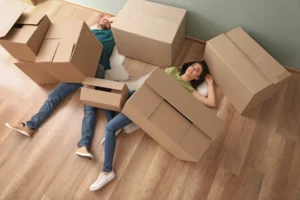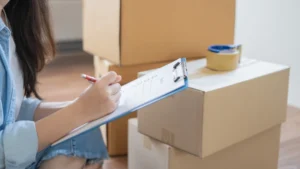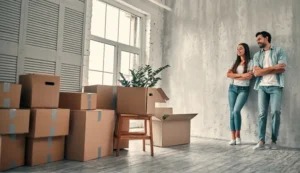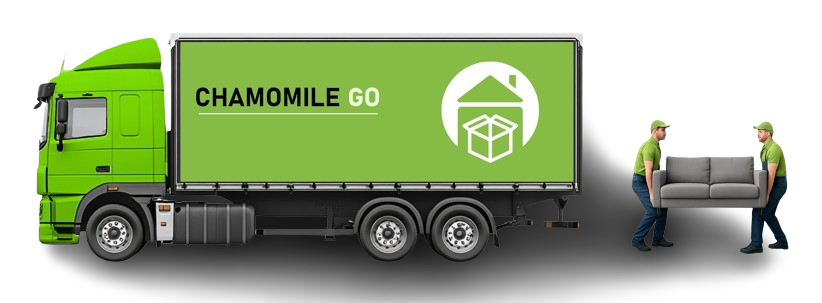What to bring first when moving to a new house is one of the most common questions people face during the relocation process. The first few hours in a new place can feel overwhelming emotionally, it’s a mix of excitement and anxiety; practically, it’s about making the space livable from the moment you step in. That’s why having a well-thought-out new house essentials checklist can make a big difference.
By packing the right first-day items ahead of time, you can avoid unnecessary stress and focus on settling in comfortably. Whether it’s your toiletries, important documents, or basic kitchen tools, bringing the right items first helps you function smoothly from day one. A reliable moving into new house checklist ensures you’re not left searching through boxes just to find your toothbrush or a roll of toilet paper. This guide will help you understand exactly what to bring first and why it matters so your move-in day feels more like home and less like chaos.
Why It’s Important to Pack the Right Items First
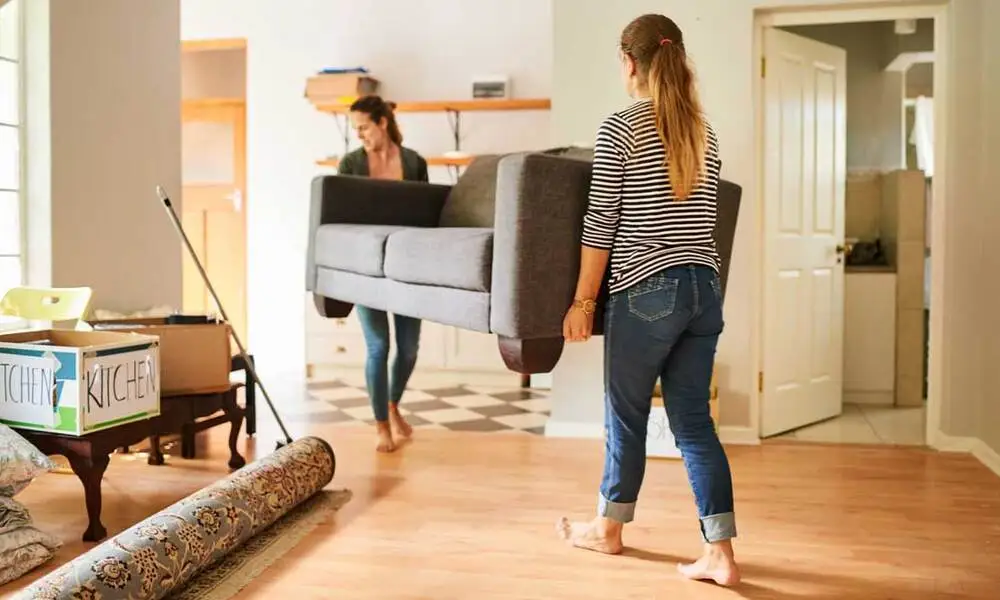
Moving can be exciting but also stressful. When you move into a new house, the last thing you want is to dig through dozens of boxes just to find your toothbrush or a clean shirt. That’s why packing the right items first makes all the difference. It not only reduces chaos on move-in day but also ensures your comfort during the critical first 24–48 hours in your new home.
1. Reduce Chaos on Move-In Day
Imagine you’ve just arrived at your new home after hours of hauling boxes and navigating traffic. You’re tired, hungry, and your phone is about to die but where’s the charger? Where are the plates for dinner or the toilet paper for the bathroom?
Packing an essentials box or “first night box” ahead of time helps you avoid this common moving stress. When the right items are packed first and kept accessible, you’ll know exactly where to reach when you need your daily basics.
2. Save Time Looking for Essentials
During the first few days in a new house, you’re not just settling in you’re also unpacking, cleaning, and figuring out your new surroundings. You don’t want to waste time opening every box just to find your phone charger, medication, or clean clothes.
New home necessities should be packed in a separate, clearly labeled box and transported with you, not in the moving truck. This increases efficiency and saves you valuable time and energy when it matters most.
3. Ensure Comfort for the First 24–48 Hours
The first couple of days after you move into a new house are often the most uncomfortable especially if you’re missing basic daily needs like:
- Bedding and pillows
- Toiletries (toothbrush, soap, toilet paper)
- Medications and first aid kit
- Snacks, water, or basic kitchenware
- Phone/laptop chargers
- A change of clothes
- Kids’ or pets’ supplies
By prioritizing these comfort-focused items, you’ll make your first night feel less like camping and more like coming home.
Pro Tip: Make a “First Night Survival Kit”
Think of this as your new home necessities survival kit. Pack it in a clear plastic bin or a suitcase and label it: “Open First”. Include must-haves based on your lifestyle anything that supports your comfort, daily needs, and peace of mind.
What to Bring First When Moving to a New House (Essentials Box List)
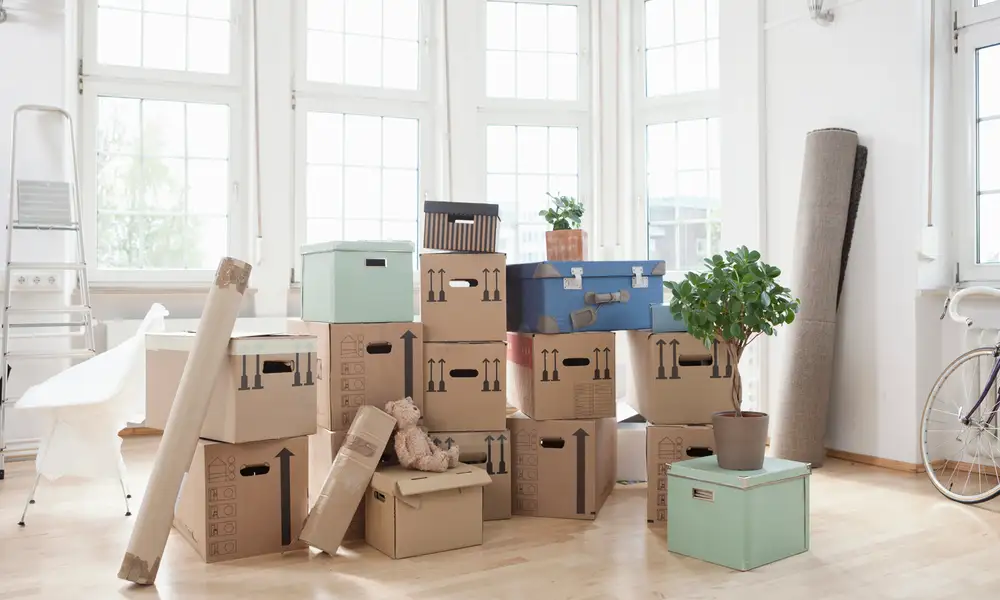
When you move into a new house, the first 24 to 48 hours are all about comfort, survival, and getting settled quickly. That’s where your essentials box also known as a “first night box” or “open-first kit” comes in. This box should contain the new home necessities you’ll need immediately upon arrival, saving you time, reducing stress, and ensuring you’re not digging through sealed boxes when you’re tired from the move.
Let’s break down exactly what to include in your essentials box so you’re well-prepared for move-in day.
3.1. Personal Essentials
These items cover your daily comfort and hygiene needs. Having them within reach makes your transition smoother and less chaotic.
- Medications
Pack all daily prescriptions and over-the-counter medications you or your family members may need. Keep them in their original containers to avoid confusion. - Toiletries
Bring basics like toothbrushes, toothpaste, soap, shampoo, deodorant, toilet paper, and hand towels. You’ll want to freshen up after a long moving day. - Chargers & Electronics
Include phone chargers, power banks, and any small electronics like a laptop or tablet. Staying connected helps with everything from setting up Wi-Fi to ordering food. - A Few Changes of Clothes
Pack enough outfits for at least 2–3 days, including undergarments, pajamas, and weather-appropriate layers. It may take a while before your full wardrobe is unpacked.
3.2. Kitchen Basics
You may not be ready to cook full meals right away, but you’ll still need access to daily needs like snacks and simple kitchenware.
- Paper Plates, Cups, and Utensils
Disposable tableware saves time and keeps cleanup easy when your dishes are still boxed up. - One Pan or Pot
If you plan to prepare a simple meal, one versatile cooking pan can go a long way. - Dish Soap and Sponge
Even if you’re not doing heavy dishwashing, you’ll need these to clean any items you use right away. - Snacks and Bottled Water
Keep granola bars, crackers, nuts, and water bottles handy to stay energized and hydrated throughout the day.
3.3. Sleeping Setup
After a long moving day, a good night’s sleep is essential for your comfort and well-being. If your bed isn’t set up yet, having basic sleeping gear will help you rest.
- Pillows and Blankets
These provide warmth and comfort, especially if you’re sleeping on the floor or an air mattress the first night. - Bedsheets
Clean sheets can make any surface feel a little more like home. - Air Mattress or Temporary Bedding
If your mattress hasn’t arrived or isn’t assembled yet, an air mattress or sleeping bag can be a lifesaver.
3.4. Cleaning Supplies
Before you fully settle in, you might want to wipe down surfaces and clean high-touch areas. Efficiency in cleaning helps create a fresh start in your new home.
- All-Purpose Cleaner
Use it for wiping countertops, doorknobs, sinks, and other surfaces. - Trash Bags
Essential for unpacking, cleanup, and managing waste during move-in day. - Paper Towels
Useful for spills, quick cleanups, and hand-drying when you haven’t unpacked towels yet. - Broom or Small Vacuum
Helps tidy up floors before placing furniture or rugs.
3.5. Important Documents & Valuables
These high-priority items should always stay with you during the move not packed away in the truck. They’re crucial for security, identity, and peace of mind.
- ID, Lease Documents, and Checkbook
You’ll likely need identification and key documents for lease verification, service setups, or emergencies. - Jewelry and Passports
Keep your valuables and legal documents on hand to avoid the risk of loss or damage. - Moving Company Contract or Receipts
Store paperwork related to your movers, including inventory checklists and payment receipts, in case of any issues during the move.
You may read about How Do You Move Your Computer And Stuff?
Small Things You Need for a New House (Often Forgotten Items)
When you’re moving into a new house, it’s easy to focus on big items like furniture and kitchen appliances. But often, it’s the small things those little everyday tools and comfort items that make the biggest difference during your first few days. These are the items that many people forget to include in their new house essentials checklist, and their absence can cause unnecessary stress when you’re settling in.
Here’s a quick guide to the often-overlooked must-haves that should be on every moving into new house checklist:
Toilet Paper
Let’s start with the most obvious yet frequently forgotten item toilet paper. Pack at least two rolls in your essentials box and put them in the bathroom as soon as you arrive. It’s a simple step that saves an awkward trip to the store later.
Shower Curtain & Hooks
After a long day of unpacking, a shower can be refreshing. But without a shower curtain and hooks, you’ll end up with a wet bathroom floor. Make sure this is included in your new house essentials checklist, especially if your new home doesn’t have glass doors in the bathroom.
Light Bulbs
Not all homes come fully stocked with working light bulbs. Some fixtures might be missing bulbs altogether. Having a small pack of standard bulbs on hand will help you avoid fumbling in the dark on move-in night
Scissors & Duct Tape
Unpacking involves a lot of boxes and sometimes stubborn packaging. A pair of scissors and a roll of duct tape will help you cut, patch, and fix things on the spot. These small tools are practical and should be one of the first things unpacked.
Extension Cords & Power Strips
Every room is different, and power outlets aren’t always in the most convenient places. Extension cords and power strips help you stay connected and keep your electronics powered while you figure out furniture placement and device setup.
First Aid Kit
Minor cuts or scrapes can happen when you’re moving furniture, opening boxes, or using tools. A basic first aid kit with band-aids, antiseptic wipes, and pain relievers is a smart addition to your moving into new house checklist.
Toolkit (Hammer, Screwdriver, Measuring Tape)
You don’t need a full workshop, but a simple toolkit can go a long way. Include a hammer, screwdriver (both flathead and Phillips), and a measuring tape to help with quick fixes, hanging pictures, or assembling furniture.
Final Reminder
These small items might not seem like a big deal, but forgetting them can slow you down when you’re trying to get settled. Add them to your new house essentials checklist to make your first few days feel more like home and less like a scramble.
Final Thoughts: Making Move-In Day Smoother
Planning your first-night essentials isn’t just about convenience it’s about setting the tone for your entire move. When you prioritize packing the right items first, you create a smoother, more stress-free transition into your new space. From having toiletries within reach to knowing exactly where your phone charger is, these small details bring comfort, efficiency, and peace of mind on day one.
Whether you’re unpacking in Los Angeles, Pasadena, Irvine, Palmdale, or anywhere nearby, having a clear plan helps you feel calm, confident, and more at home even before the boxes are fully unpacked.
At Chamomile Go, we know that moving is more than just transporting boxes. It’s about making a fresh start with the correct assistance. Our skilled staff is available to help your move go smoothly from beginning to end, offering everything from packing and loading services to full-service local moving throughout Los Angeles and the neighboring areas.
- Local Moving in Los Angeles & nearby cities
- Professional Packing & Unpacking
- Senior Moving Support
- Loading & Unloading service
- Logistics Coordination
Need help with your upcoming move?
Contact Chamomile Go today to get a free quote or schedule your move. We’re here to make your relocation smooth, safe, and stress-free from start to finish.
FAQs
What Should I Pack First When Moving Into A New House?
Start with your essentials box, also called a first-night kit. It should include toiletries, medications, chargers, a few changes of clothes, basic kitchenware, bedding, and important documents. These are the must-haves you’ll need within the first 24–48 hours.
Why Is An Essentials Box Important During A Move?
An essentials box ensures you have access to your daily needs immediately after moving in. It reduces moving stress, saves time, and helps you settle in comfortably while the rest of your belongings are still packed.
What Are Common Items People Forget To Bring On Move-In Day?
Some often-forgotten items include toilet paper, shower curtain, light bulbs, scissors, duct tape, extension cords, and a basic toolkit. These small things can make a big difference on your first day in your new home.
Should I Pack My Essentials In A Suitcase Or A Separate Box?
Either works but make sure the bag or box is clearly labeled and travels with you, not in the moving truck. A suitcase is great for keeping things organized and easy to access.
What Kitchen Items Should I Bring First When Moving?
Pack paper plates, plastic utensils, cups, bottled water, snacks, and one pot or pan. These simple items help you avoid stress when you’re not ready to unpack your entire kitchen.
